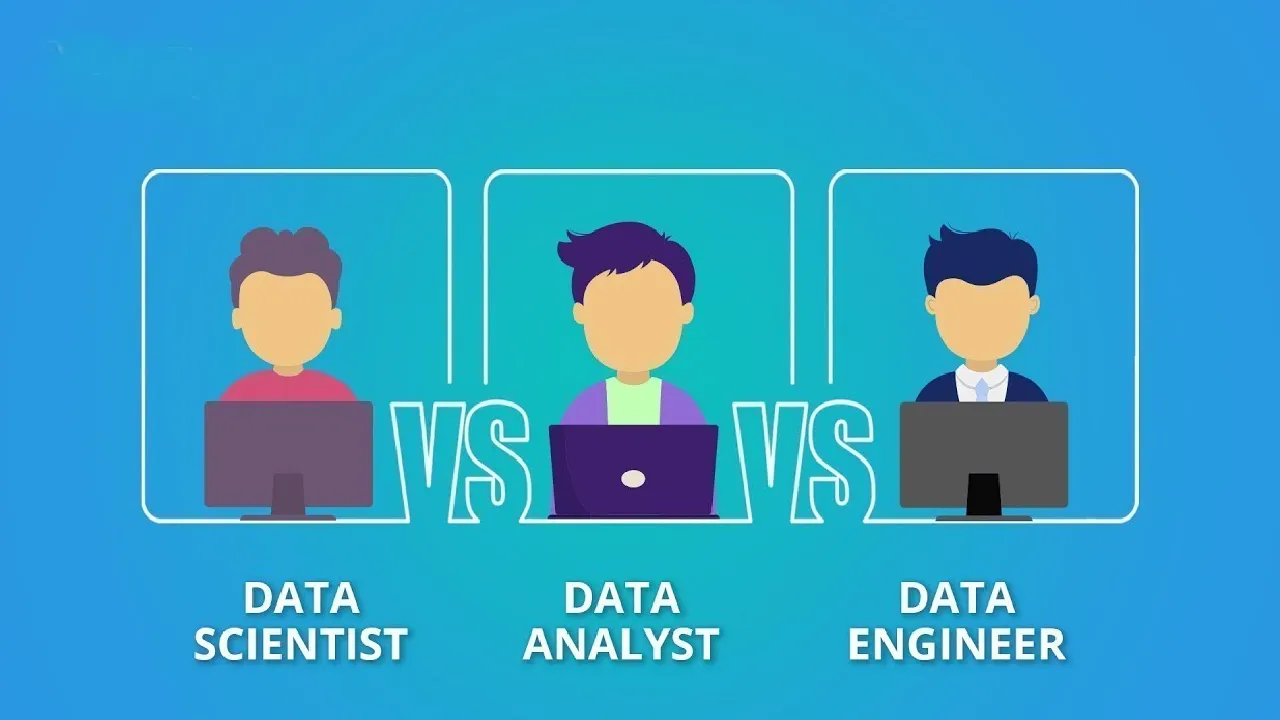Data engineer, data analyst, and data scientist — these are job titles you’ll often hear mentioned together when people are talking about the fast-growing field of data science.
There are plenty of other job titles in data science and data analytics too. But here, we’re going to talk about:
- 1
- The “big three” roles (data analyst, data scientist, and data engineer)
- 2
- How they differ from each other
- 3
- Which role is best for you
Although precisely how these roles are defined can vary from company to company, there are big differences between what you might be doing each day as a data analyst, data scientist, or data engineer.
We’re going to dig into each of these specific roles in more depth.
What is a Data Analyst?
Data analysts deliver value to their companies by taking data, using it to answer questions, and communicating the results to help make business decisions.
Common tasks done by data analysts include data cleaning, performing analysis and creating data visualizations.
Depending on the industry, the data analyst could go by a different title (e.g. Business Analyst, Business Intelligence Analyst, Operations Analyst, Database Analyst). Regardless of title, the data analyst is a generalist who can fit into many roles and teams to help others make better data-driven decisions.
What do data analysts do?
The data analyst has the potential to turn a traditional business into a data-driven one. Their core responsibility is to help others track progress and optimize their focus.
How can a marketer use analytics data to help launch their next campaign? How can a sales representative better identify which demographics to target? How can a CEO better understand the underlying reasons behind recent company growth? These are all questions that the data analyst provides the answer to by performing analysis and presenting the results.
While often data analyst positions are “entry level” jobs in the wider field of data, not all analysts are junior level. As effective communicators with mastery over technical tools, data analysts are critical for companies that have segregated technical and business teams.
An effective data analyst will take the guesswork out of business decisions and help the entire organization thrive. The data analyst must be an effective bridge between different teams by analyzing new data, combining different reports, and translating the outcomes. In turn, this is what allows the organization to maintain an accurate pulse check on its growth.
#career #career tips #data analyst #data engineer #data science #data scientist
